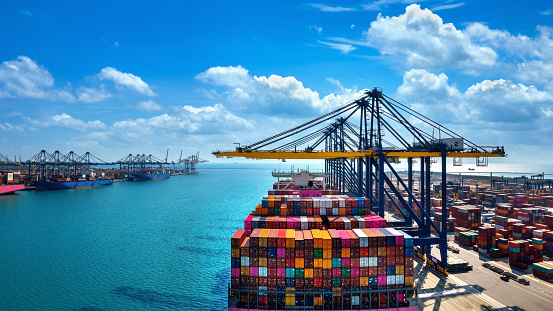
Ship chartering Malaysia is the practice of a vessel owner renting out the use of a ship to another company, the charterer, for the transportation of goods. It may appear straightforward, but in practice, it is anything but. There are numerous types of charter contracts, various cost components, and, of course, numerous players. In this article, we’ll go over the fundamentals of chartering, including how it works, who’s involved, and how costs are allocated.
The ship owner and charterer are the two main players in ship chartering. There are others, the most important of which is the ship broker. There is also the shipping agent, who handles the important in-port details, and the ship manager, who operates and crews the vessel on behalf of the owner for a fee.
It should be noted that the term charter party refers to the contract itself, rather than the parties who enter into it. The charter party specifies the agreed-upon rate, duration, and terms between the ship owner and the charterer.
The ship owner arranges for cargo to be transported from one port to another. The Charterer enters into a contract with the owner to rent the ship or a space on the ship for the purpose of transporting his cargo. In some cases, a charterer may own the cargo and hire a ship broker to locate a suitable vessel to deliver the cargo for a set fee, known as the freight rate. The charterer may not also have his own cargo, but instead charters a vessel for a set period of time and trades the ship to carry cargoes for a profit. In a good market, he can also sub-hire the ship to other charterers.

The ship broker acts as a middleman, connecting the principals in order to earn a brokerage fee. In negotiations, he can represent either the owner or the charterer, and he usually specializes in specific areas of cargo carrying. A dry cargo broker, for example, specializes in the chartering of bulk carrier vessels. He can represent an owner looking for a charterer or a charterer looking for a suitable vessel to ship his cargo.
A tanker broker, similarly, and as the name implies, specialises in chartering tanker vessels and has a thorough understanding of the specific requirements for transporting crude oil, gas, oil products, or chemicals.

Shipping Agents are appointed to handle shipments and cargoes at ports on behalf of the owners, fleet managers, and charterers. Working closely with port authorities, they handle routine tasks such as crew transfers, customs documentation, waste declarations, and so on. They can also provide detailed information on activities at the destination port, so shippers are aware of any issues that may arise while the goods are in transit.
Finally, there is what is known as an affreightment contract. This is not a true charter contract, but it is similar to a voyage charter. The owner agrees to transport the goods for the charterer on a specified route and for a specified period of time under this type of contract. More than one ship may be used, and, unlike a true charter, there is no laytime period or demurrage payable.
